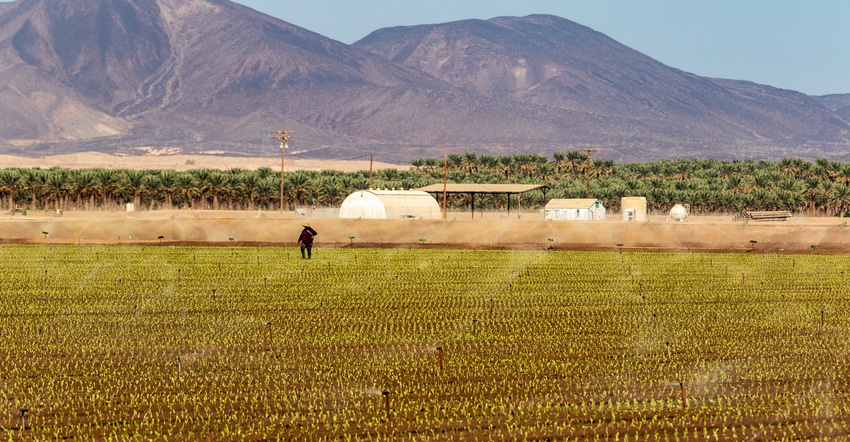June 24, 2022

A recent commentary by Farm Press Associate Editor, Todd Fitchette, argues it’s not fair for California to use the Colorado River water to which it is legally entitled. However, his premise, that too much water goes to big cities like Los Angeles and San Diego and that they should rely on water sources other than the Colorado, is not true.
Of California’s 4.4 million acre-feet of Colorado River water, almost 90% goes to agriculture, providing water for high-value winter fruit and vegetable crops, and forage crops like alfalfa to feed beef and dairy herds, vital parts of California agriculture.
Mr. Fitchette’s solution to a problem not based on fact would be harmful to California agriculture, cause more insecurity in our food system, raise prices for consumers, and make Americans more dependent on imported food supplies.
The largest share of the Colorado River goes to irrigate California farmland and the Imperial Irrigation District is a major part of that. IID has been a steward of its resources since 1911, over 110 years, and has been an integral part of agriculture in the region as well as a partner helping to provide flexibility for a significant part of Southern California. The Coachella Valley Water District is another critical water provider that depends on the Colorado and is another source of the winter fruits and vegetables that Californians and Americans across the country depend on.
Yes, a portion of this water goes to southern California cities, and for good reason. IID conserves a half-million acre-feet of water a year and delivers only verified conserved water to urban and agricultural water agencies. IID’s on-farm water conservation program, and its innovative farmers, are a huge part of that overall effort.
Related: Can we curtail a Colorado River catastrophe?
Throughout California other agricultural water districts also participate in voluntary ag to urban water transfers, which helps when government efforts to meet the state’s water supply needs fall short.
Asking for further sacrifice on the part of these farmers is unfair unless and until the state of California (and others) can ramp up and accelerate the commitment to restore the Salton Sea, made nearly two decades ago in exchange for the district’s authorization of these large-scale agriculture-to-urban water transfer programs. The Salton Sea has been sustained for decades by runoff from Imperial and Coachella Valley farms. Because of effective water conservation programs, the Salton Sea no longer receives the inflow it once did and the result has been a receding shoreline and bare soil, or “playa,” on the perimeter. Winds blow the dust throughout the region, affecting air quality for the rural, disadvantaged communities that dot the landscape. These communities rely on agriculture for their economic activity and would cease to exist if Colorado River water wasn’t available. There is no alternative to this supply.
Even though the impartial Legislative Analyst’s office affirmed the need for the State to restore the Salton Sea in 2008, until the current administration, little had been done to meet those obligations.
The current era of cooperation is what keeps the state moving ahead and we must foster and protect it. The Bureau of Reclamation says 2-4 million acre-feet of water demand reductions on the Colorado River must take place to protect Lake Mead and it is likely that agricultural water use will play into whatever solution is needed to accomplish that. But entirely cutting off California’s access to the Colorado River is completely ridiculous, especially to anyone who expects to have a meal.
[Mike Wade is executive director of the California Farm Water Coalition.]
You May Also Like




